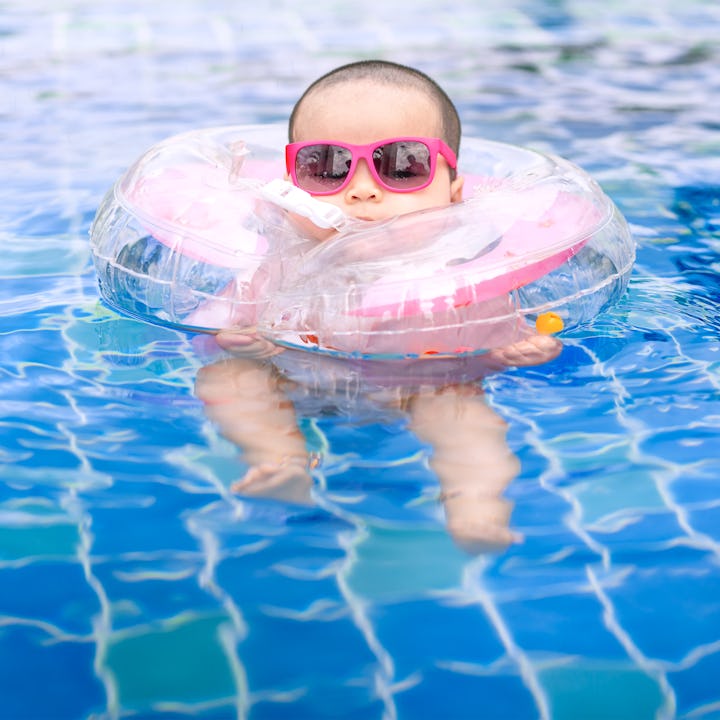FDA Warns Against Baby Neck Floats After A Reported Death
The organization urged caregivers to stop using inflatable neck floats, especially with babies who have developmental delays or special needs.

The Food and Drug Administration issued a new alert earlier this week warning parents to stop using baby neck floats on their kids, as doing so could lead to serious injury or even be fatal. The organization emphasized the warning for babies who have developmental or special needs and might be using infant neck floats as a part of water therapy.
“The risks of using baby neck floats include death due to drowning and suffocation, strain, and injury to a baby’s neck. Babies with special needs such as spina bifida or SMA Type 1 may be at an increased risk for serious injury,” namely, an “increased risk of neck strain and injury,” the organization said in the alert.
Neck floats, inflatable plastic rings were designed to go around a baby’s neck to insure their head stays above water, allowing them to float freely. Caregivers often use neck floats during a bath, while their baby is swimming, or as a physical therapy tool in water therapy intervention. In the alert, the FDA notes that “these neck floats have not been evaluated by the FDA and we are not aware of any demonstrated benefit with the use of neck floats for water therapy interventions.”
The FDA is aware of one infant death linked to a neck float, and another infant injury that required hospitalization. In both instances, the caregivers “were not directly monitoring them.”
While these neck float-related fatalities and injuries are rare, the FDA reiterates that these incidents do happen, and it is highly likely that not every case has been reported to the FDA.
Right now, the FDA is looking into companies “marketing neck floats for use as a water therapy tool without FDA clearance or approval,” adding that they have “communicated our concerns about these promotional materials to these companies and will continue to monitor promotional materials and claims for these devices.”
Generally, the American Academy of Pediatrics recommends avoiding floaties altogether, no matter the age. “They are not a substitute for approved life jackets and can give children and parents a false sense of security.”
The FDA is asking caregivers and health care providers to file a report if they know of any baby injured by a neck floatation device with their online voluntary reporting form.